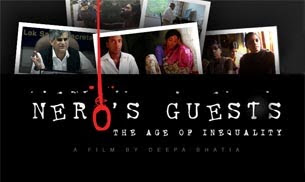Usha and the Red brigade
1 year ago
Read this only if you have nothing else to do but note down the angle subtended by the sun (or the moon) at your eye every two minutes.
This blog has no copyright. So, with respect to anything you find here, you are free to reproduce, distribute, interpret, misinterpret, distort, garble, do what you like, even claim authorship, without my consent or the permission of anybody.








Externally we see the earth’s environment eroding before our eyes, the population soaring, and our natural resources diminishing. We see unparalleled greed and anger forming greater divisions within an evershrinking planet. At a time when the world pleads for kindness and compassion, we see cultures continuing their ancient bickering while forgetting their shared heritage.Internally our problems continue as well. We hurt, and we do not understand why. Fear, desire, and grief fill our life. Our psychological sophistication should solve our problems, but therapies and self-improvement methods do not seem to diminish our isolation and separation. We would like to feel compassion for all beings, but our own problems are so demanding that we have little time to include others in our heart. We try to compensate for these shortcomings with more socially engaged activities, but we find that our motivation is often based in righteousness, which further divides the world...“You are like a man holding a flashlight, trying to run beyond its beam. The view you are holding…is undermining your intent.”..Suddenly the Buddha is found in the middle of relationships, work, and family, within all activities, reactions, thoughts, and emotional responses. Nothing is outside Now, because no boundary is drawn to separate Now from then. The message of the Buddha is equally relevant in all locations and at all times. Until this is fully realized and until there is no movement to escape this environment for a better spiritual setting, we will continue to suffer...Spiritual forms and rituals can be very helpful in focusing our intention and providing a doorway to the sacredness of all life. They can awaken a sensitivity of heart and allow our mind to become quiet. Forms and rituals become a problem when they stop representing a gateway into oneself and become an exclusive presentation of the sacred, such as the belief that the only way to commune with God is by going to church or taking a walk in nature, or that the only way to meditate is to be alone in quiet surroundings. When we think of rituals and forms as the only way to access the sacred, the rest of our life is placed on spiritual hold.


In an interaction of an individual, when only the essential nature of the object with which the interaction happens shines through and it appears as if the individual's self is absent, then the individual is said to be in a state of samādhi.
Briefly, a robber came in in to the Mutt in the wee hours of Sunday and murdered a woman who raised an alarm regarding the robbers presence. The robber, who was wielding a knife, was later overpowered, and, according to the news report above, was beaten up by the other people present there to the extent that he was struggling for life by the time the cops arrived. He later died at a local hospital.
When were you born? Most of us would say the date that is on our birth certificates. That is for practical purposes, but can we truly make sense of reality based with these documents? Where were you one day before the date on your birth certificate? No, this is not some esoteric stuff full of impressive incomprehensibility. Read on!One day before the date you were born, you were a fetus inside your moms womb. What about a few months before - a smaller fetus. Going back, you were a single celled version of yourself. What about before that? At that point, you were in the form of a potential for yourselves inside the sperm and ova of your parents. That potential has now taken form in the form of you.If we continue to go back, where was that potential inside your parents before they themselves were born? This potential has existed always and will always exists. You are simply a form that has potential has taken for a very brief period of time. So, the individual simply is a process that is continuously changing. While there might be a clear starting and ending point for a particular form that process may take, the process itself has no starting or ending! Sadly, most of us are totally unaware of this and are totally lost in the celebration of the start of a form the process takes and equally lost in grief at the end of the form that process had temporarily taken.

I once asked a leaf if it is scared that all the other leaves in the tree are falling. The leaf smiled gently at me. It then said that all its life, it had contributed strongly to the well being of the tree. By now, it said, I have contributed my maximum and have nothing much to give. So, I live primarily through the tree and not through the left over form that is hanging precariously from the branch. It further said it is good for the leaf to now fall so that processes in the soil can utilize what is left over and put them to use for the well being of the tree. When the next gust of autumn wind came along, the tree waved me a good bye and happily left its temporary home!